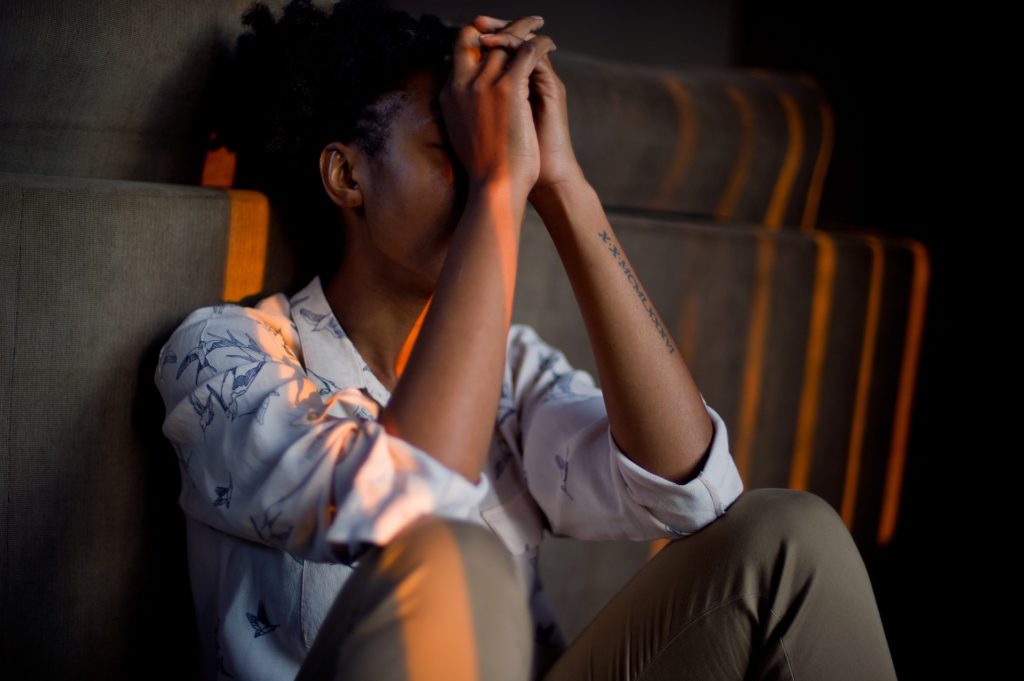- Calls to this hotline are currently being directed to Within Health, Fay or Eating Disorder Solutions
- Representatives are standing by 24/7 to help answer your questions
- All calls are confidential and HIPAA compliant
- There is no obligation or cost to call
- Eating Disorder Hope does not receive any commissions or fees dependent upon which provider you select
- Additional treatment providers are located on our directory or samhsa.gov
The Many Different Roles of Shame in Eating Disorders

Shame is generally viewed as an emotion of self-comparison. As Theodore Roosevelt famously stated, “Comparison is the thief of joy,” and this is certainly true of shame in eating disorders as well.
More broadly defined, shame “involves a fear or expectation of eliciting disgust in others (and)…is experienced when one perceives oneself to be judged as flawed and inadequate by some real or imagined observer [1].”
It isn’t difficult to see how these feelings of failure to live up to expectations and judgment from peers can result in a lack of joy, self-worth, and self-love.
Bodily Shame and Shame in Eating Disorders
General shame can do a lot of damage in relation to how an individual may view themselves, however, a concept known as bodily shame has proven to be an even stronger predictor of eating pathology [1].
Bodily shame is just as it sounds – shame that is related specifically to the body. Those who do not live in a socially accepted body will likely experience this shame, whether from their own self-comparisons or from the ridicule and judgment they receive from others.
These judgments can cause individuals to feel that they are less-valued members of society because they do not fit into “ideal” standards of beauty.
Studies have compared the impacts of general and bodily shame and found that bodily shame represents a stronger risk for increases in eating disorder symptoms [1].
Current and Anticipated Bodily Shame
Current bodily shame is used to describe shame that is “experienced in relation to one’s current body size” while anticipated shame describes the “shame that is anticipated if one were to gain weight [1].”
An individual being judged or ridiculed for their physical appearance is experiencing current bodily shame and may change what they wear, isolate themselves, or negatively alter their eating and exercise habits as a result.
The anticipation of such shame can motivate one to make the same changes before they feel judged or ridiculed to avoid those negative feelings. As one researcher specified, “the experience of shame is aversive, and we modify our behavior to reduce these feelings [1].”
Current shame has proven to be a strong predictor of binge eating while anticipated bodily shame serves as a “strong predictor of feelings and behaviors associated with the avoidance of weight gain [1].”
External Internal Shame
Shame can be further delineated as both internal and external. Internalized shame refers to how an individual perceives or judges themselves whereas external shame refers to how an individual may perceive that others view them.
Unlike current or anticipated shame, these aspects are not mutually exclusive and can be experienced simultaneously. For example, one may view themselves as flawed or unattractive and, as such, also perceive that others must find them disgusting and unworthy.
Internalized shame has been found to be predictive of bulimia nervosa while external shame is more predictive of anorexia nervosa [1]. External shame is also more strongly linked to psychopathology, specifically depression when compared to internal shame [1].
Shame in Eating Disorders & Treatment
Clearly, shame, and the many forms it can take plays a powerful role in developing and maintaining eating disorder behaviors. As such, it can also play an adverse role in treatment.

One study suggested the effects of shame are long-lived and resistant to change, making treatment of shame-related eating disorder pathology more challenging.
Shame can also be involved in how people perceive and discuss their ED behaviors. The previously mentioned study found that “women with EDs tend to minimize their symptoms and other behaviors due to feelings of shame” and that a substantial portion of eating disorder respondents “indicated that they had not disclosed an important issue during their contact with professionals [2].”
All of this information supports the notion that shame plays a hugely negative role in the development, maintenance, and treatment of eating disorders.
The information should serve as a reminder to everyone to be kind and avoid judgments when interacting with ourselves and others. Don’t let shame take up space in your head and don’t be the one to put it in others.
 About the Author: Margot Rittenhouse is a therapist who is passionate about providing mental health support to all in need and has worked with clients with substance abuse issues, eating disorders, domestic violence victims and offenders, and severely mentally ill youth.
About the Author: Margot Rittenhouse is a therapist who is passionate about providing mental health support to all in need and has worked with clients with substance abuse issues, eating disorders, domestic violence victims and offenders, and severely mentally ill youth.
As a freelance writer for Eating Disorder and Addiction Hope and a mentor with MentorConnect, Margot is a passionate eating disorder advocate, committed to de-stigmatizing these illnesses while showing support for those struggling through mentoring, writing, and volunteering. Margot has a Master’s of Science in Clinical Mental Health Counseling from Johns Hopkins University.
References:
[1] Trooper, N. A., Redshaw, C. (2012). General shame and bodily shame in eating disorders: a 2.5 year longitudinal study. European Eating Disorders Review, 20, 373-378.[2] Swan, S., Andrews, B. (2003). The relationship between shame, eating disorders and disclosure in treatment. British Journal of Clinical Psychology, 42, 367-378.
The opinions and views of our guest contributors are shared to provide a broad perspective of eating disorders. These are not necessarily the views of Eating Disorder Hope, but an effort to offer discussion of various issues by different concerned individuals.
We at Eating Disorder Hope understand that eating disorders result from a combination of environmental and genetic factors. If you or a loved one are suffering from an eating disorder, please know that there is hope for you, and seek immediate professional help.
Published on October 12, 2017.
Reviewed By: Jacquelyn Ekern, MS, LPC on October 12, 2017.
Published on EatingDisorderHope.com

The EatingDisorderHope.com editorial team comprises experienced writers, editors, and medical reviewers specializing in eating disorders, treatment, and mental and behavioral health.

